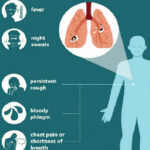
According to him, instead of using religion to forge national development, preachers make provocative statements without caution.
Kaigama stated this in his homily titled “Christ identifies with us in our joys and sorrows,” delivered at the Church of Annunciation Pastoral Area, Gishiri, Abuja.
He said, “Two weeks away from Easter, we are urged to make good use of the remaining days of Lent to re-examine our journey thus far in respect of prayer, fasting and almsgiving. Coincidentally, the Muslims have also begun their season of Ramadan; a season also of fasting, prayer, and almsgiving. Muslims and Christians who belong to the “Abrahamic faith” must sincerely pray for the peace, unity, healing and progress of our nation, using religion to build rather than to destroy.
“The false sense of religious superiority and the rate at which some Nigerians weaponised religion before, during and after the elections in Nigeria was/is sickening. Instead of using religion to help us to forge ahead in national unity and development and to subsequently gain heavenly reward, we hear outbursts of some so-called preachers preaching that when one’s religious conviction is provoked, one should “kill or be killed,” and no one seems to call them to order.
“Where will this very poor and irrational understanding of religion take Nigeria to? In his vision of the dry human bones, Prophet Ezekiel said God would put His Spirit in the dry human bones, and right before his very own eyes, all those bones began to reassemble themselves and becoming humans once again, becoming covered with muscles and sinews, and the Spirit of God coming down upon them all, and out came a huge throng of the people of God, all living and breathing. Ezekiel’s hope of restoration is still valid for us.”
“We still hope to experience individual spiritual rebirth and national transformation even if we now feel devastated, politically and economically; lost many opportunities, God still makes a promise of regeneration and restoration.
“What our people suffer is not only a deprivation of social, economic and material needs, but also a separation from God, a kind of ‘spiritual exile’. The corruption of sin is such that some people are no longer ashamed of wrongdoing; they pride themselves in sinful habits such as murder, abortion, banditry, terrorism, drug/alcohol abuse, as though they are a new moral code to be emulated.”




